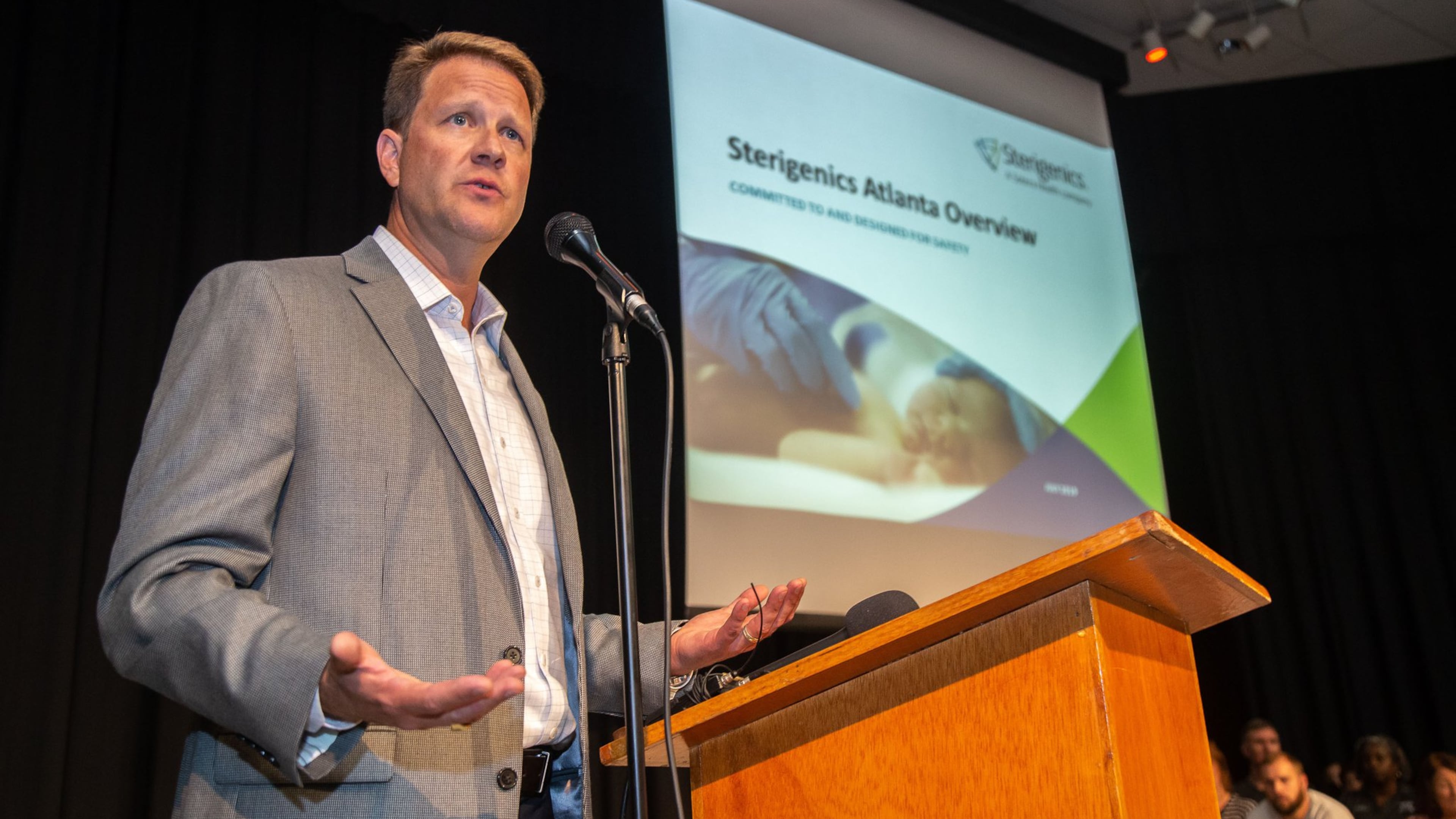Opinion: Sterigenics sterilization plant is vital, safe

Until recently, most Georgians had probably never heard of ethylene oxide (EO). Unfortunately, some of what they are hearing now regarding the Sterigenics facility in Atlanta is inaccurate or highly sensationalized. There are some important facts to consider:
- EO is in the air around us — in Georgia and across the country — but not at harmful levels.
- EO is a common building block in many of the products we use on a daily basis, including household cleaners, personal care products and pharmaceuticals. It is also emitted from car and truck engines and natural gas combustion, and is produced naturally by plants and the human body.
- EO is essential to preventing infections in the U.S. health care system. It is the only sterilization method that meets the sterility requirement mandated by the U.S. Food and Drug Administration (FDA) for certain devices. Approximately 50% of sterile devices in the U.S. are sterilized using EO and most surgeries today involve at least one device that was sterilized using EO.
- Multiple companies in Georgia, including Sterigenics, BD, Sterilization Services of Georgia and KPR U.S. utilize EO to sterilize medical products and devices. The EPA recently estimated that there are over 100 facilities across the United States that utilize EO to sterilize medical devices.
At Sterigenics, our priorities are clear. We strive to keep our employees, the communities in which we operate, and the patients we serve safe. Our actions to voluntarily enhance our operations over time and carefully train our employees, along with our record of compliance, demonstrate our commitment to our priorities.
Our Atlanta facility operates safely. We outperform the requirements under the permits and regulations that govern our work. We understand that the very nature of the methods we use to sterilize devices demands an uncompromising commitment to safety.
We also recognize the concerns generated by recent reports regarding the long-term effects of EO in the air. While the scientific understanding regarding low-level exposure to EO continues to develop, and the EPA re-examines regulations regarding EO, we are investing millions of dollars to make our facility even safer.
In coordination with the Georgia EPD and Gov. Brian Kemp’s administration, we are making additional voluntary investments to further contain and control the EO we use in the sterilization process. We have temporarily suspended sterilization operations to expedite the installation of these enhancements, and we now expect to complete them by the first week of October. We have also agreed to share regular reports with officials detailing our operations to provide additional transparency to the community.
The steps we are taking go above and beyond to ensure our controls are in line with the highest standards in the U.S. so we can provide further reassurance to the community that our facility does not present a danger, while continuing to sterilize critical medical products and devices.
Each day, we sterilize more than one million critical medical devices at our Atlanta facility. Devices range from single-use surgical kits used in a range of vital procedures to vascular catheters needed for minimally invasive diagnosis and treatments. Without these, vital procedures would not occur and patients’ lives would be at risk.
We look forward to continuing to work with the Georgia EPD, Gov. Kemp’s administration and other federal, state and local officials.
Sterigenics is proud to be one of several companies that safely sterilize critical and lifesaving products for hospitals and patients. As we complete the enhancements at our Atlanta facility, we invite all our fellow EO sterilizers to do the same because that’s what our communities deserve.
Philip Macnabb is president of Sterigenics.


